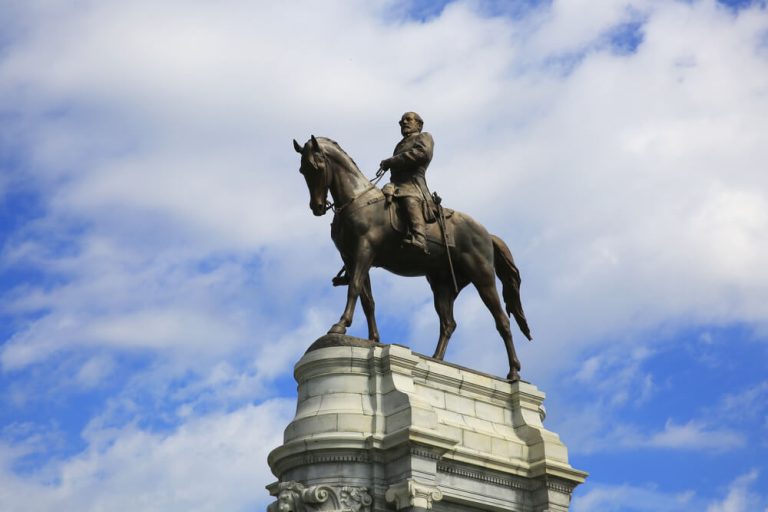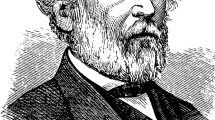Robert E. Lee stands as a complex and pivotal figure in American history, renowned for his role as a Confederate general during the Civil War. Born into a prominent Virginia family in 1807, Lee’s military career began with his graduation from the United States Military Academy at West Point. His tactical prowess and leadership skills quickly distinguished him, leading to significant roles in the Mexican-American War.
As tensions between the North and South escalated, Lee faced a profound personal dilemma. Despite his opposition to secession, he chose to align with his home state of Virginia when it joined the Confederacy. Appointed as a senior military advisor and subsequently taking command of the Army of Northern Virginia, Lee became one of the most celebrated Confederate leaders.
His strategies during key battles such as Antietam and Gettysburg are studied extensively for their military acumen, despite ultimately being unable to secure victory for the Confederacy. After surrendering at Appomattox Court House in 1865, Lee’s post-war years were marked by efforts toward reconciliation and education as president of Washington College (now Washington and Lee University).
Lee’s legacy is multifaceted; he is both criticized for his role in defending slavery and secessionist ideals and admired by some for his leadership qualities and post-war advocacy for unity. As an enduring historical figure, Robert E. Lee continues to evoke discussion on issues of heritage, memory, and national identity within American history.
The Early Life and Military Career of Robert E. Lee
Robert E. Lee’s early life and military career laid the foundation for his later prominence in American history. Born on January 19, 1807, in Stratford Hall, Virginia, Lee was the son of Revolutionary War hero Henry “Light-Horse Harry” Lee and Anne Hill Carter. His upbringing in a respected family instilled values of duty and honor that would guide him throughout his life.
Lee’s formal military education began at the United States Military Academy at West Point, where he excelled academically and graduated second in his class in 1829. His time at West Point not only honed his engineering skills but also established his reputation as a disciplined and capable officer. Upon graduation, he was commissioned as a second lieutenant in the Corps of Engineers.
Lee’s early career saw him involved in various engineering projects across the country, which showcased his meticulous attention to detail and strategic thinking. However, it was during the Mexican-American War (1846-1848) that Lee truly distinguished himself as a military leader. Serving under General Winfield Scott, he played crucial roles in several key battles such as Veracruz and Chapultepec.
His service during this conflict earned him recognition for bravery and tactical prowess, cementing his status as one of the army’s most promising officers. The experience gained during these campaigns not only enhanced Lee’s leadership abilities but also expanded his understanding of large-scale military operations.
Robert E. Lee’s biography is marked by these formative years that shaped him into a revered figure within both military circles and American history at large. His early career achievements set the stage for future challenges where he would continue to demonstrate extraordinary command capabilities amidst complex circumstances.
The Decision to Side with the Confederacy

The decision to side with the Confederacy during the American Civil War was influenced by a complex web of factors, particularly in states like Virginia. Understanding these influences requires examining the reasons for joining the South, which often stemmed from deeply rooted Virginia loyalty and family ties.
One of the primary reasons for joining the South was economic interest. Many Southern states, including Virginia, had economies heavily reliant on agriculture and slavery. The secession crisis further heightened tensions as Southern states felt their way of life was under threat from Northern policies that opposed slavery.
Virginia’s loyalty to the Confederacy was also significantly driven by cultural and historical ties. As a state with a strong sense of identity and pride in its heritage, many Virginians felt an allegiance to their Southern neighbors who shared similar values and social structures.
Family ties played a crucial role as well. In an era where family bonds were paramount, individuals often found themselves siding with their kin who supported secession. This personal aspect made decisions during this period intensely emotional and sometimes divisive within communities.
Ultimately, these key influences (economic interests, cultural loyalty, and familial connections) combined to shape Virginia’s decision to join the Confederacy during this tumultuous chapter in American history.
Moral and Ethical Dilemmas Faced by Robert E. Lee
Robert E. Lee, a prominent figure in American history, is often remembered for the moral and ethical dilemmas he faced during his lifetime. One of the most profound conflicts was the tension between his personal beliefs and his perceived duty to his state. Lee was a career military officer who had sworn allegiance to the United States, yet when Virginia seceded from the Union, he felt compelled to follow his home state despite his reservations about secession. This decision highlighted a significant internal conflict between loyalty to national unity and fidelity to regional identity.
Lee’s views on slavery further complicated this internal struggle. Although he personally considered slavery morally questionable and believed it would eventually fade away, he also felt bound by societal norms and legal structures that supported it. This dichotomy between personal beliefs about slavery and societal expectations added another layer of complexity to Lee’s ethical considerations.
Moreover, Lee’s stance on unionism presented yet another moral quandary. He valued the concept of a united nation but ultimately chose to lead Confederate forces in what he saw as an act of defending Virginia’s rights rather than an outright endorsement of disunion or rebellion against federal authority.
These dilemmas illustrate how Robert E. Lee grappled with competing loyalties and convictions throughout his life, making him a figure whose legacy is still debated today due to these nuanced moral and ethical challenges.
The Impact of Regional Loyalty on Lee’s Choice
During the Civil War, regional loyalty played a significant role in shaping individuals’ decisions and allegiances. One of the most notable examples of this is Robert E. Lee’s choice to side with the Confederacy, a decision heavily influenced by his profound loyalty to Virginia. Despite being offered command of the Union Army, Lee’s deep-rooted connection to his home state ultimately guided his decision.
Virginia’s secession from the Union posed a personal and moral dilemma for Lee. His Southern identity was intertwined with a strong sense of duty and allegiance to his birthplace. At that time, many individuals identified more closely with their states than with the nation as a whole, reflecting the prevailing sentiment of state sovereignty over federal authority.
Lee’s choice underscores how regional loyalty and home state allegiance were powerful forces during this tumultuous period in American history. For many like him, these ties outweighed other considerations, illustrating how deeply ingrained Southern identity was for those living through the Civil War. This complex interplay between personal beliefs and regional loyalty continues to be a point of reflection when examining historical decisions made during that era.
The Legacy of Robert E. Lee’s Decision Post-Civil War
The legacy of Robert E. Lee’s decisions following the Civil War remains a pivotal topic in understanding the broader outcomes of this turbulent period in American history. As the commander of the Confederate Army, Lee’s surrender at Appomattox Court House effectively marked the end of the Civil War, setting in motion a series of events that would shape the Reconstruction era.
Lee’s decision to advocate for reconciliation and urge his fellow Southerners to accept defeat and rejoin the Union played a crucial role in shaping post-war America. His stance helped to ease some tensions during Reconstruction, as it encouraged former Confederates to participate in rebuilding efforts rather than resist federal authority.
However, evaluating Lee’s historical legacy is complex. While his decision contributed positively to national healing, it also coincided with an era fraught with challenges such as racial tensions and economic disparities that lingered long after Reconstruction ended. The impact of these outcomes continues to be debated among historians today.
In examining Lee’s legacy, it’s essential to consider both his immediate actions post-war and their long-term implications on American society. His choices offer valuable insights into how leadership decisions can influence historical trajectories and highlight the ongoing need for nuanced evaluations when interpreting past events.
Reflecting on Robert E. Lee’s Choices and Their Historical Significance
Reflecting on Robert E. Lee’s choices offers a profound insight into the complexities of leadership and morality during one of America’s most tumultuous periods. As a Confederate general, Lee’s decision to align with the Confederacy was influenced by his deep loyalty to his home state of Virginia, despite his personal reservations about secession and slavery. This choice highlights the intricate interplay between personal convictions and societal pressures that defined much of the Civil War era.
Lee’s military strategies have been studied extensively for their ingenuity and boldness, yet they also serve as a reminder of the war’s devastating human cost. His surrender at Appomattox Court House marked not only the end of major hostilities but also set a tone for reconciliation in post-war America. By urging peace and unity after the conflict, Lee played a crucial role in shaping how the nation would begin to heal its deep divisions.
The historical significance of Lee’s actions continues to spark debate about how we remember figures associated with contentious aspects of history. His legacy is intertwined with discussions on heritage, memory, and identity that persist today. Thus, examining Robert E. Lee’s choices provides valuable lessons on leadership under pressure and reflects broader themes in American history regarding conflict resolution and national unity.


